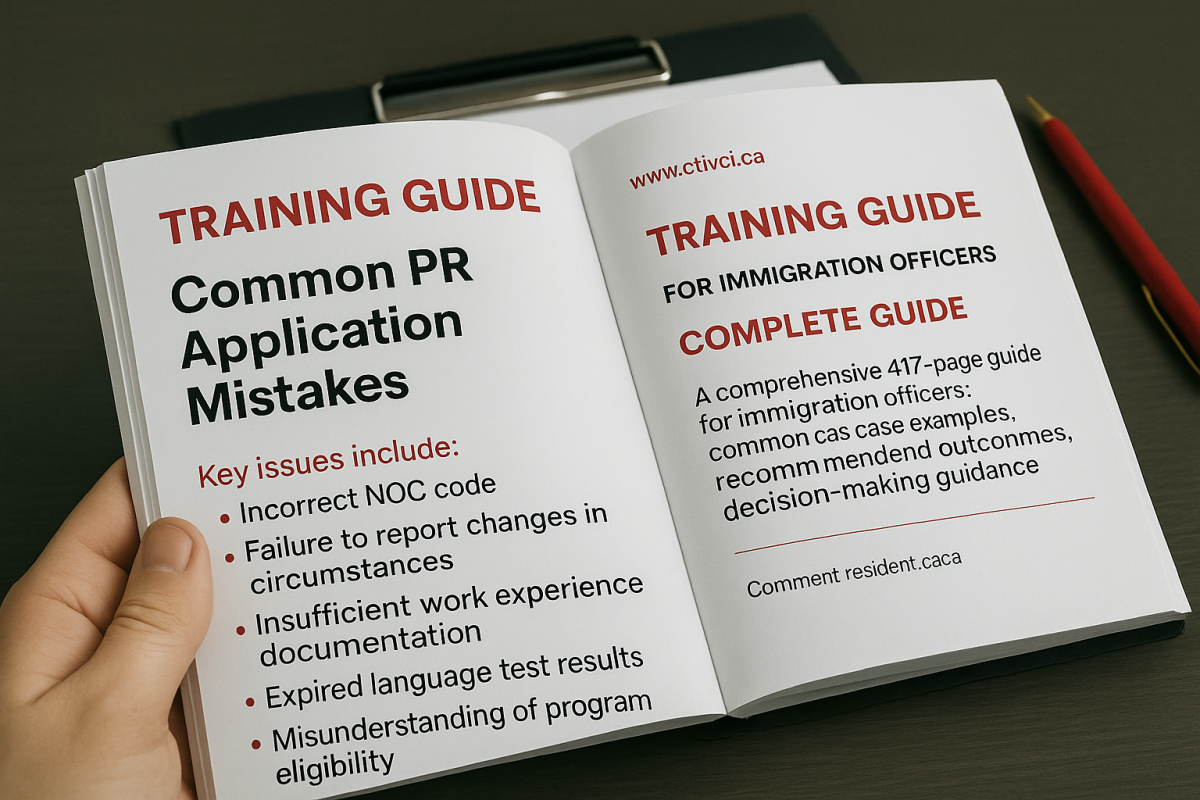
Applying for Canadian permanent residence (PR) is a life-changing process, but even small errors can lead to delays or refusals. Immigration, Refugees and Citizenship Canada (IRCC) recently released a 447-page training guide for officers assessing PR applications, highlighting common pitfalls applicants face. Let’s break down these mistakes and how to avoid them, so your journey to Canada stays on track 16.
1. Using Incorrect NOC Codes
Canada’s National Occupational Classification (NOC) system categorizes jobs based on duties, not titles. Misaligned NOC codes are a top reason for application reviews or refusals.
Example:
Sofia, a customer service supervisor, claimed NOC 62020 (Retail Sales Supervisor). However, her duties—handling complaints and logging client issues—matched NOC 64409 (Customer Service Representative). Her application was flagged for review.
Solution:
-
Use the NOC’s lead statement and main duties to match your role.
-
Example: Liam, a content creator with the title “Reporter,” realized his blog-writing and client strategy tasks aligned better with NOC 51111 (Authors and Writers) than 51113 (Journalists).
2. Not Declaring Changes in Circumstances
Failing to update IRCC about life changes (e.g., divorce, job loss) can be seen as misrepresentation, leading to a 5-year immigration ban.
Example:
Raj’s CRS score dropped after divorcing post-ITA (Invitation to Apply). His application was refused because his recalculated score fell below the cutoff.
Solution:
-
Immediately inform IRCC of changes (marital status, job offers, etc.).
-
Re-enter the Express Entry pool with updated details.
3. Inadequate Proof of Work Experience
IRCC requires continuous, paid, full-time work in TEER 0-3 occupations. Unpaid internships or roles during studies often don’t qualify.
Example:
Priya, a Bollywood actor with 30 years of experience, lacked 1 year of continuous work in the past decade. Her application was rejected.
Solution:
4. Expired or Invalid Language Test Results
Only tests from IRCC-approved providers (IELTS, CELPIP, TEF) are accepted, and they must be valid at the time of application submission.
Example:
Carlos submitted expired CELPIP scores (2.5 years old) with his PR application. Despite meeting CLB 9 earlier, his results were invalid.
Solution:
5. Misunderstanding Program Eligibility
Each immigration stream (Express Entry, CEC, PNP) has unique rules. Misinterpreting these leads to refusal.
Example:
Emily, a Research Assistant at the University of Toronto, claimed CEC eligibility for work done during her studies. However, CEC excludes experience gained while a full-time student.
Solution:
6. Overlooking Medical or Police Checks
Inadmissibility due to medical, criminal, or financial issues affects the entire family.
Example:
Arjun’s PR application was denied because his spouse’s kidney condition exceeded Canada’s healthcare cost threshold under A42 of the Immigration and Refugee Protection Act.
Solution:
Key Takeaways to Strengthen Your PR Application
| Mistake |
Solution |
| Wrong NOC code |
Match duties, not job titles |
| Undeclared changes |
Update IRCC immediately |
| Invalid work proof |
Ensure paid, full-time TEER 0-3 roles |
| Expired language tests |
Use IRCC-approved, valid results |
| Medical inadmissibility |
Explore humanitarian exemptions |
FAQs: Addressing Common Concerns for Canadian PR Applications
Q: Can I apply with a TOEFL iBT score?
A: TOEFL is valid for study permits but not PR applications. Use IELTS or CELPIP instead 7.
Q: Does self-employment count for CEC?
A: No. CEC requires employee status under temporary residency 1.
Q: How long are police certificates valid?
A: They must be issued within 6 months of application submission.
Final Tips for a Smooth PR Journey
-
Double-check NOC codes: Use IRCC’s NOC portal.
-
Stay proactive: Update IRCC on changes ASAP.
-
Consult experts: Licensed consultants can navigate complex cases (e.g., inadmissibility).
By avoiding these pitfalls, you’ll improve your chances of joining Canada’s vibrant communities. For personalized guidance, book a consultation with our RCIC-certified team.
Author Bio:
Sanjay Prasher is a Regulated Canadian Immigration Consultant (RCIC) with over a decade of experience helping families and professionals navigate Canada’s immigration system. He specializes in Express Entry, PNPs, and GTS LMIA , Intra company Transfer .





